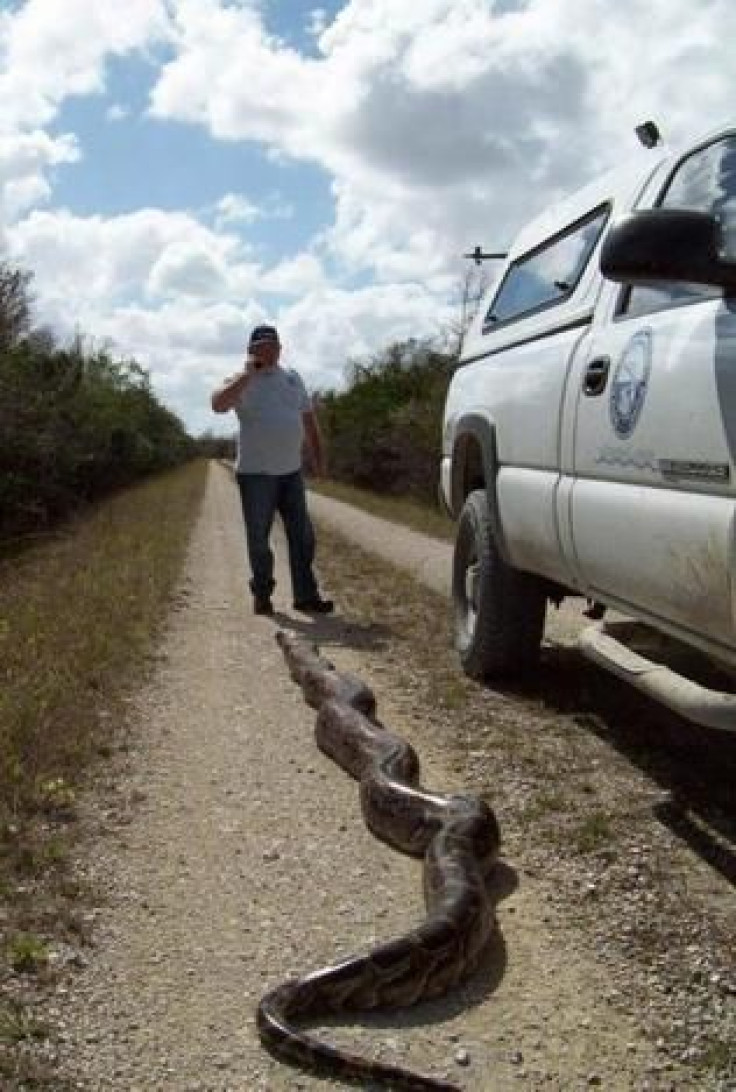18-Foot Burmese Python Caught In Florida Everglades, Could Be State Record Capture [PHOTO]

One of Florida’s largest Burmese pythons was caught and killed Tuesday by state authorities.
The 18-foot, 2 inch long female Burmese python weighed about 150 pounds. Bobby Hill, a python control agent, spotted the giant snake on a levee 25 miles west of Miami, district spokesman Randy Smith said.
“It looks to be about 18 feet,’’ Smith told the Miami Herald. “It could very well be a state record.’’
Levees are a known spot to capture snakes that crawl on top of the embankments to warm their bodies in the sun. Last May, the state’s largest Burmese python was captured in a canal southeast of Miami-Dade County. Jason Leon spotted an 18-foot, 8-inch Burmese python sticking out of some roadside bush. As he dragged the deadly snake from behind its head, it began to wrap itself around Leon’s leg. Leon’s friend then killed it with a knife, Local 10 reports.
As for the latest catch, the body of the 18-foot Burmese python is six inches shorter and 22 pounds heavier than the record-breaking snake Leon killed. For now, its body will be transported to the University of Florida where it will be studied. A necropsy will be performed to see what the snake ate before it died and whether It was carrying any eggs.
In 2012, a 17-foot, 7-inch female Burmese python was caught and killed in Everglades National Park. That snake was pregnant with 87 eggs and weighed just over 164 pounds.
Native to the jungles and grassy marshes of Southeast Asia, Burmese pythons are one of the largest snake species on Earth measuring 23 feet or more in length in the wild. They are known to be excellent swimmers with the ability to stay underwater for 30 minutes before surfacing for air, according to National Geographic.
Burmese pythons are an invasive species in the United States – often bought as exotic pets that escape or are released by their owners. With no natural predators, the Burmese python population has skyrocketed killing native wildlife like bobcats, foxes and raccoons, LiveScience reports.
"You'd be hard pressed to find a rabbit or squirrel down there in the Everglades now," Smith told Live Science. "These snakes eat alligators — or they try to. They don't have any enemies and they eat anything they can get their teeth on."
© Copyright IBTimes 2024. All rights reserved.












